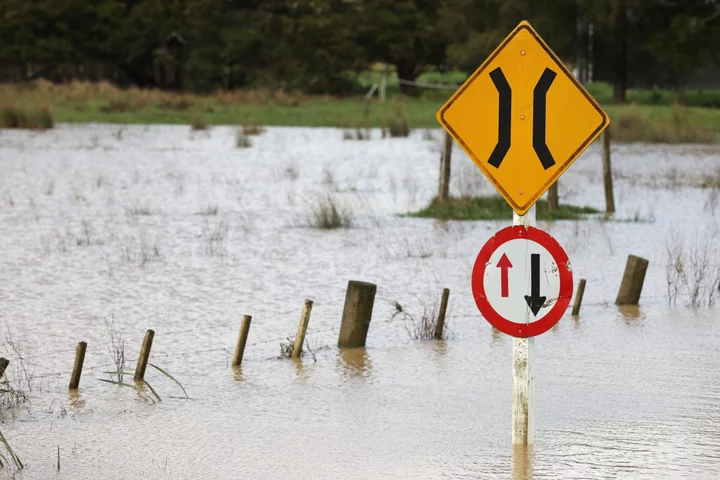The Senate voted late on Thursday night to raise the debt limit and avoid allowing the United States to default on its debt for the first time in history after having an all-night marathon session of votes to assuage Republican concerns.
The legislation passed 63 to 36 after senators held 11 votes on amendments —10 from Republicans and 1 from Democrats — to address concerns about the bill. All but five Senators in the Democratic caucus--Sens Bernie Sanders (I-VT), Elizabeth Warren (D-MA), Ed Markey (D-MA), John Fetterman (D-PA) and Jeff Merkley (D-OR)--voted for the legislation while 31 Republican Senators opposed it.
“America can breathe a sigh of relief because in this process we are avoiding,” Senate Majority Leader Chuck Schumer said before the votes began on Thursday evening.
The vote came after the House passed the legislation on Wednesday that was the result of bipartisan negotiations between the House and the White House.
The bill will now head to President before 5 June, the date that Treasury Secretary Janet Yellen had warned that the United States would default on its debt.
Republicans raised concerns about some of the restraints on defence spending, which is capped at $886bn.
“Well, my message is, I'm a Reagan Republican,” Sen Lindsey Graham (R-SC) told The Independent. “And you do military budgets based on threats and you want to fight over the role of the Republican Party on national defence, I welcome the fight.”
Mr Graham expressed concern that it would lead to the United States not being able to support Ukraine in its war against Russia.
“And if you want to avoid conflict, you better stand up to aggression,” he said.
Sen Susan Collins (R-ME) echoed those concerns in a floor speech.
“It would trigger an automatic meat an indiscriminate across-the-board cut in our already inadequate defence budget and in the domestic discretionary non-defence funding,” Sen Susan Collins (R-ME) said in a floor speech. “This would happen automatically if in fact all 12 appropriations bills have not been passed.”
Ms Collins said that such a problem could be remedied through a defence supplemental package, which other Senators have also discussed.
“It was important for some of our members to have folks on the record, acknowledging that there clearly could be a need will be a need for additional assistance for our national security interests,” Senate Minority Whip John Thune (R-SD) told The Independent.
But some Republicans said they still opposed the debt limit increase.
“Trade deficit with China,” Sen Josh Hawley (R-MO) told The Independent about why he opposed the bill. “Not gonna do anything about it.”
Before the votes began, the Senate went into overtime with negotiations, with Sen Kyrsten Sinema (I-AZ) serving as an intermediary between Democrats and Republicans.
“The President took too long but he had his own process and we got to save the country from having to fall,” Sen Mitt Romney (R-UT) told The Independent. “Speaker McCarthy has been underestimated and he's proven that he could get something done.”
Conversely, Sen Tim Kaine (D-VA) proposed an amendment to strike a provision to expedite the completion of the Mountain Valley Pipeline, a natural gas pipeline that spans from West Virginia to Virginia, that ultimately failed 30 to 69. The pipeline is a top priority for Sen Joe Manchin (D-WV).
Mr Manchin celebrated the inclusion of the pipeline in the agreement.
“It’s important for our country, very much important,” Mr Manchin told The Independent.
The approval of the pipeline triggered Sen Ed Markey (D-MA), an outspoken advocate for combating climate change, from opposing the legislation. But Sen Brian Schatz (D-HI), another climate hawk, said he would vote for it.
“The agreement is the agreement we're going to have to vote for it,” he told The Independent.
Other Democrats criticised the fact the bill imposed work requirements for the Supplemental Nutrition Assistance Program, known as SNAP and formerly called food stamps, for adults between the ages of 50 and 54 who do not have children and do not have disabilities.
“I did not agree to these SNAP restrictions, and I won’t give Republicans an opening to try and take food from more food insecure Americans in Farm Bill negotiations later this year,” Mr Fetterman said in a statement after the vote. “As I communicated to leadership and the White House, I would have voted to avoid default if it would have made the difference. All in all, this was a tough vote and an ugly situation manufactured by extortionists. While we avoided a catastrophe this time around, we should never put the country in this situation again.”
Mr Fetterman said Mr Biden should have invoked the 14th amendment to the US Constitution to avoid a default on the nation’s debt.
The vote signals the end to a drawn-out fight between the Republican-controlled House on one end and a Democratic-controlled Senate and the White House on the other.
Mr Schumer said the quick passage of the legislation showed the willingness to the Senate to avoid a catastrophic default.
Read More'Shrink the room:' How Biden and McCarthy struck a debt-limit deal and staved off a catastrophe
Underestimated McCarthy emerges from debt deal empowered as speaker, still threatened by far right
Biden and McCarthy’s debt limit deal went through – but there are winners and losers
'Shrink the room:' How Biden and McCarthy struck a debt-limit deal and staved off a catastrophe
Biden and McCarthy’s debt limit deal went through – but there are winners and losers
What’s next for Biden-McCarthy debt limit deal as Senate races to beat default?









